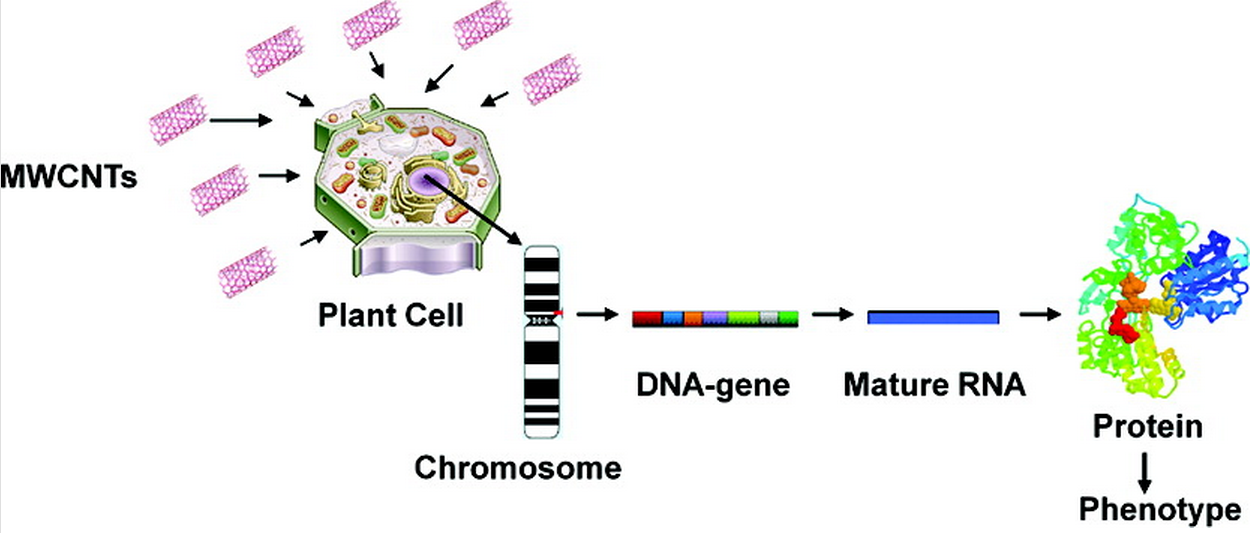Carbon nanotubes can double growth of cell cultures important in industry
April 5, 2012

Diagram showing the complex effects that multiwalled carbon nanotubes (MWCNTs) can induce at the cellular and molecular levels in living organisms. Interaction of plant cells with MWCNTs can lead to significant changes at the molecular level and affect the expression of specific genes and the production of proteins responsible for a particular phenotype. (Credit: ACS Nano)
A dose of carbon nanotubes more than doubles the growth rate of plant cell cultures — workhorses in the production of everything from lifesaving medications to sweeteners to dyes and perfumes — researchers at the University of Arkansas report.
Their study is the first to show that carbon nanotubes boost plant cell division and growth.
Their previous research demonstrated that multiwalled carbon nanotubes (MWCNTs) can penetrate through the thick coatings on seeds, stimulate germination of the seeds and stimulate the growth of certain plants.
Those discoveries “have the potential to transform agricultural practices in the near future and to provide solutions to some of the most serious problems related to plant growth and development,” the scientists said.
Their new research focused on how MWCNTs affect the growth of model tobacco plant cell cultures. Plant cells of many plant species, grown in large industrial vats, find extensive use in producing medical and commercial products and plants for agriculture.
The scientists found that tiny amounts of MWCNTs ramped up the activity of genes involved in cell growth. MWCNTs also seem to work by activation of channels that transport water into cells, helping cells divide and grow faster.
Ref.: Mariya V. Khodakovskaya, et al., Carbon Nanotubes Induce Growth Enhancement of Tobacco Cells, ACS Nano, 2012; [DOI:10.1021/nn204643g]